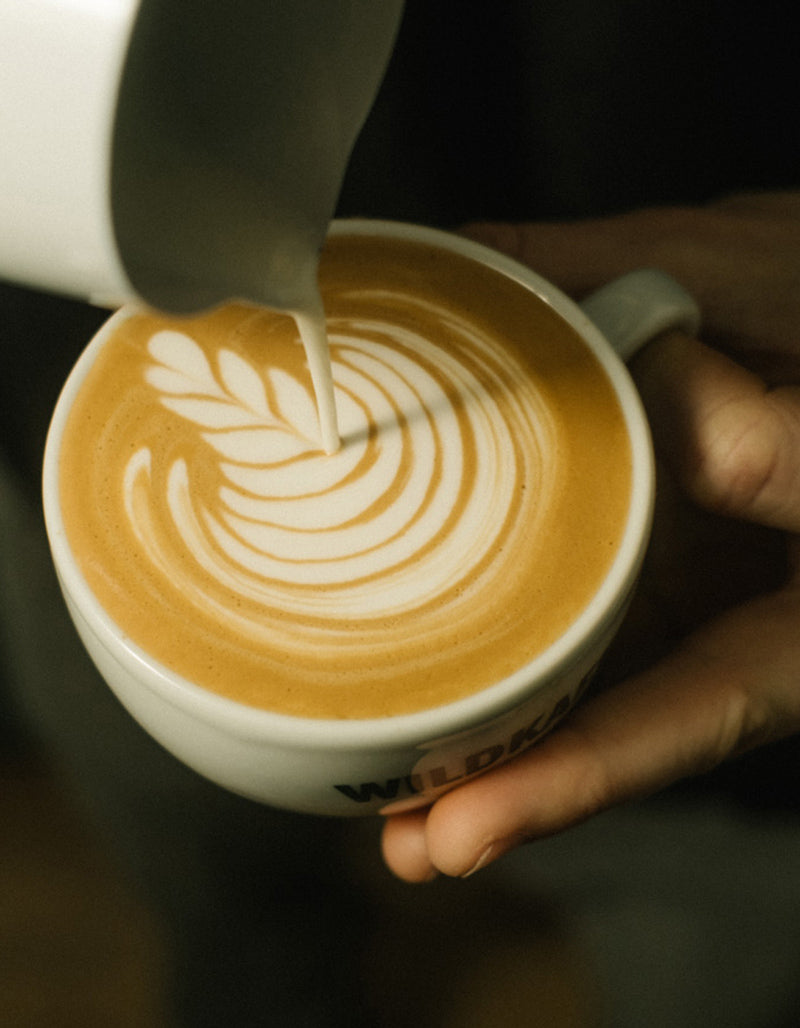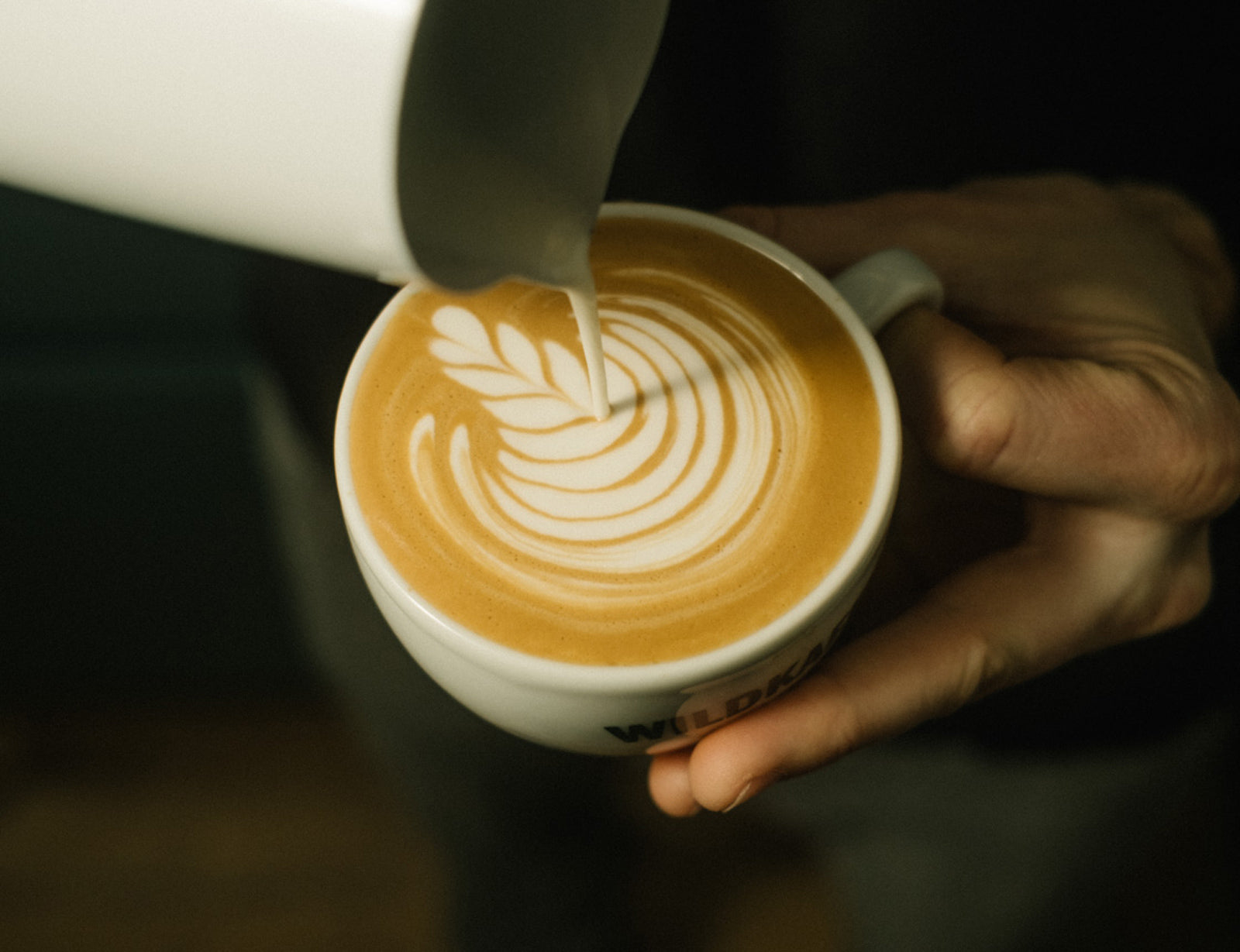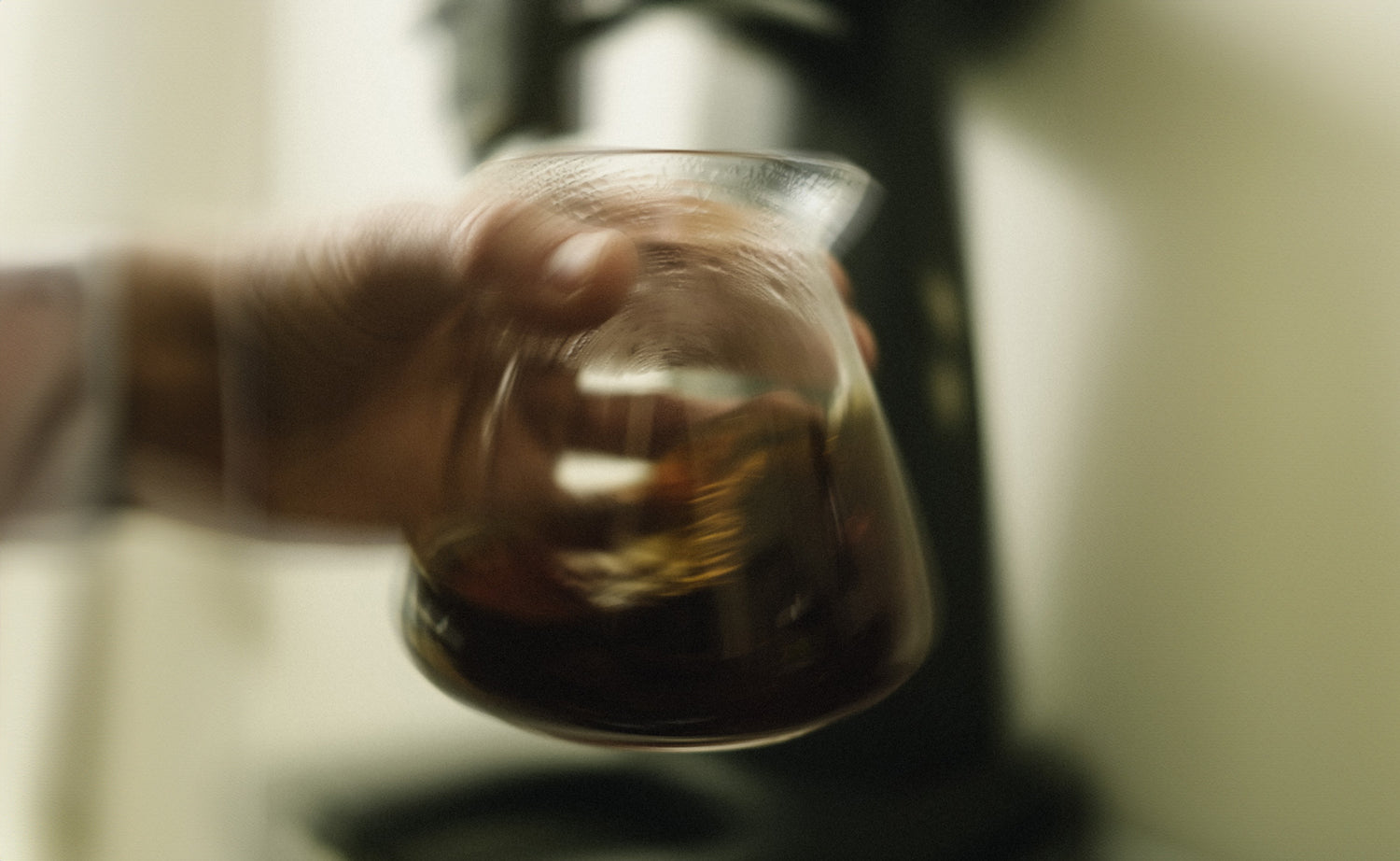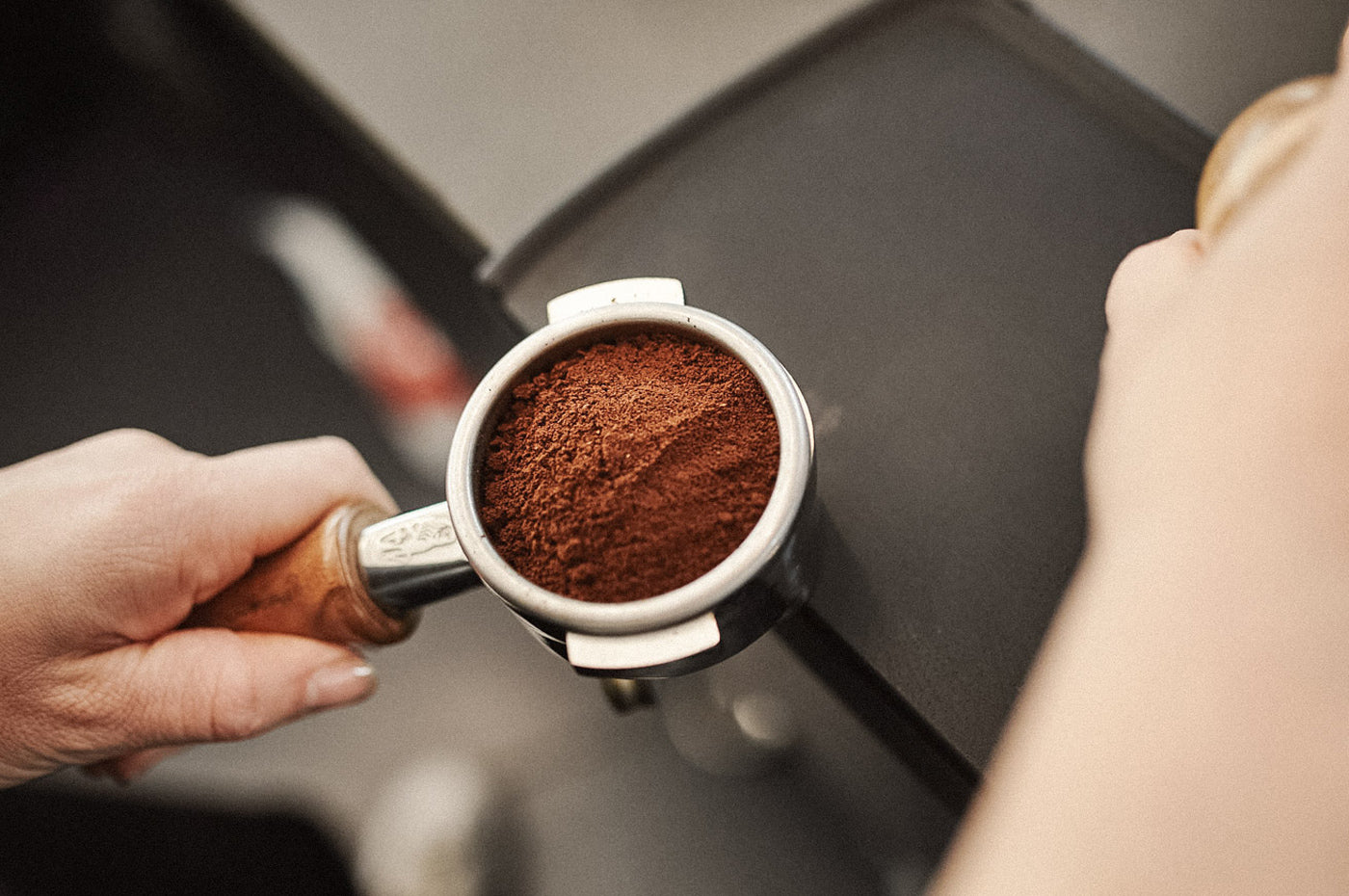The correct dosage of coffee also plays a major role in ensuring that your coffee tastes exactly as you expect it to. The correct dosage of coffee provides the basis for the coffee taste in your cup and should therefore not be underestimated or neglected. In order to actually achieve the correct dosage of coffee, we recommend choosing one of the tools from our online shop: the coffee scale. It helps you with the correct dosage of coffee and is a particularly essential tool when preparing coffee. In the following lines, we will show you in detail how to achieve the correct dosage of coffee.
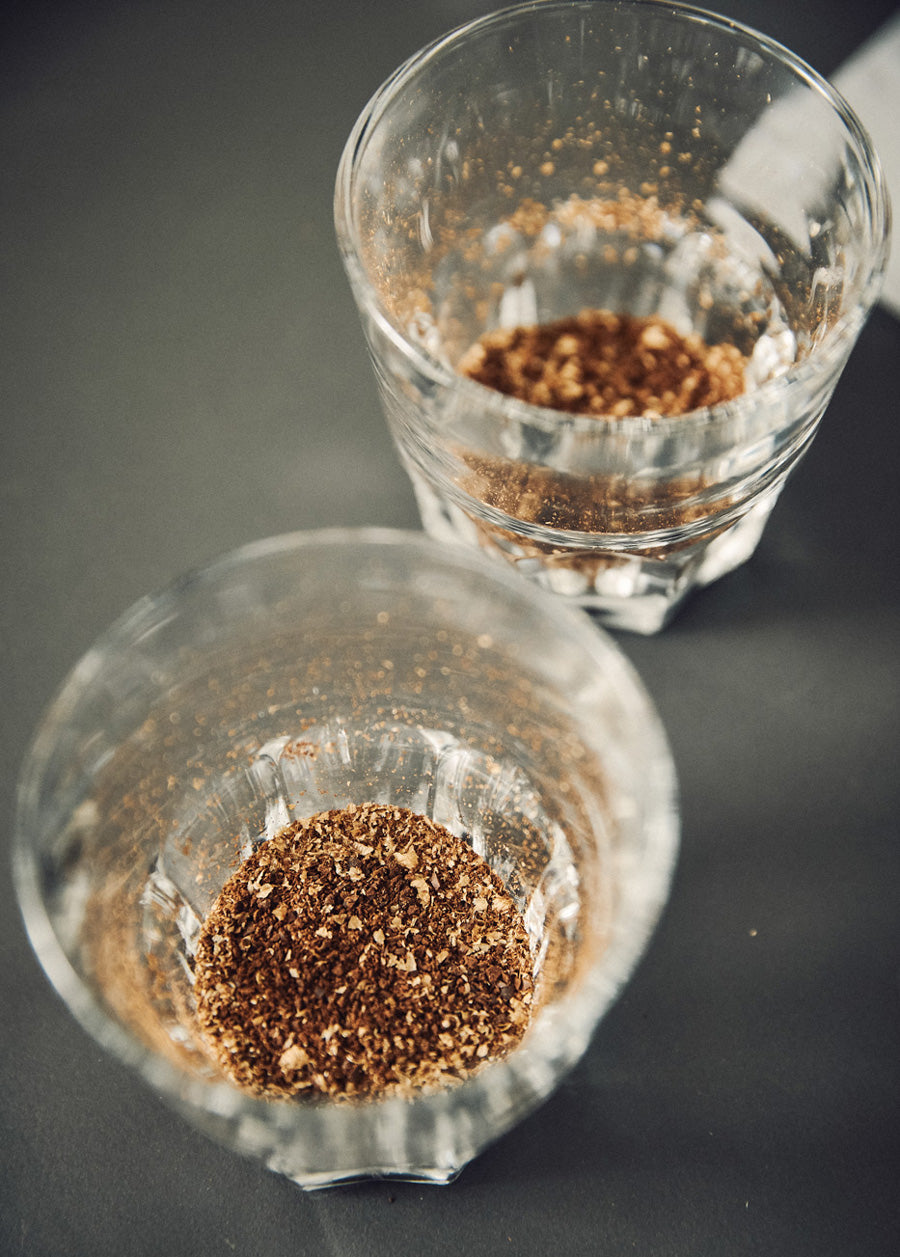
The right coffee dosage - how does it work?
To make really good coffee, you need to choose the right beans and grind the right amount of coffee. The measurement in tablespoons that is often used is pretty outdated and should be changed to the exact number of grams using a scale, especially if you want good coffee flavor. Only in an extreme emergency, when no scales are available, can you theoretically switch to measuring in tablespoons.
Ideally, you have a high-quality coffee scale that can measure the exact weight to the gram as well as the exact time. The models from Hario and Acaia are particularly suitable for this.
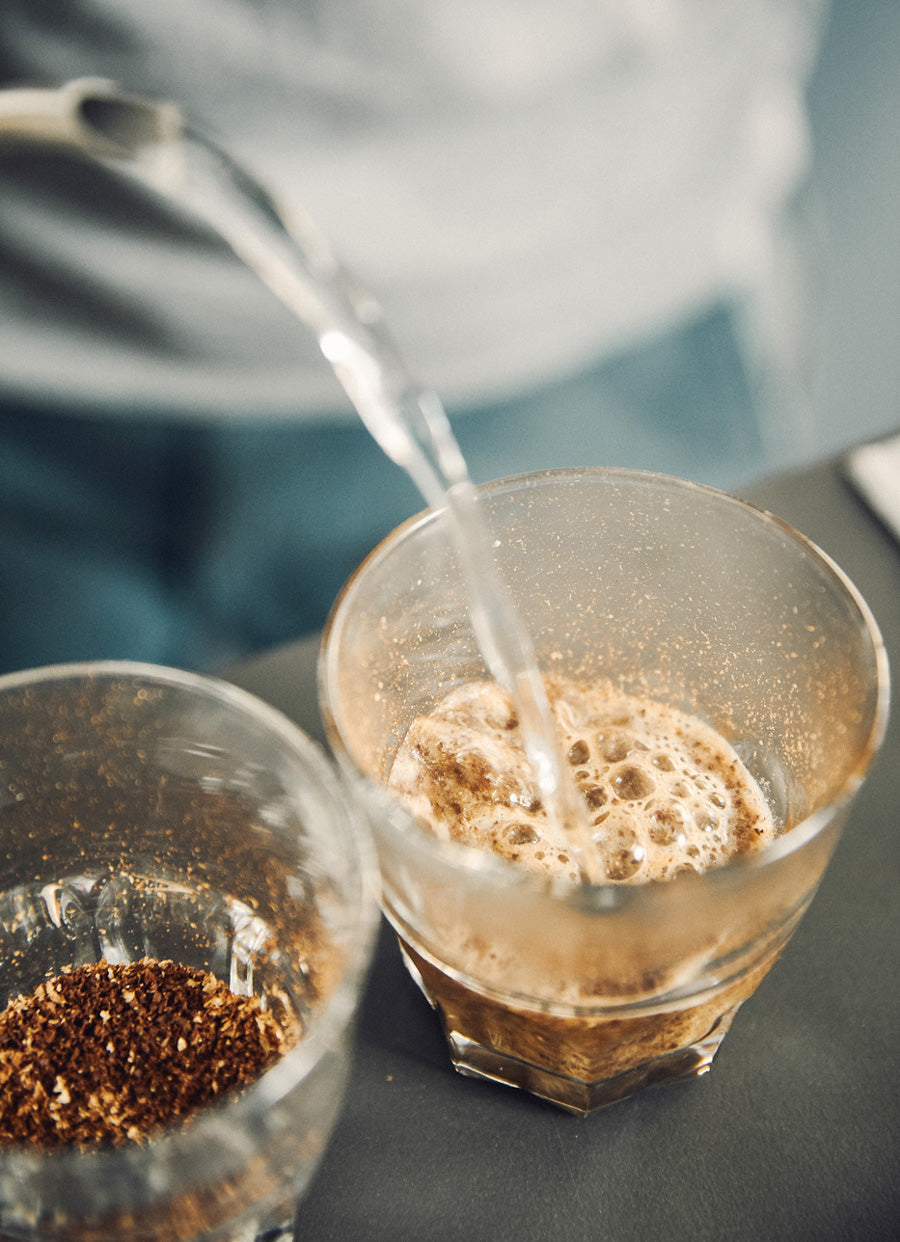
The dosage of coffee - rough guidelines
The amount of ground coffee always relates to the amount of coffee you want to prepare. The main thing here is the ratio of water to coffee. The Specialty Coffee Association of Europe provides a rough guideline that you can use as a guide. You should use 60 grams of coffee per liter. However, this value is really only a guideline. Each preparation method works according to a different pattern and therefore requires a different amount of coffee. It doesn't matter which preparation method you use, because each has its own guidelines regarding the correct dosage of coffee that you should use as a guide.
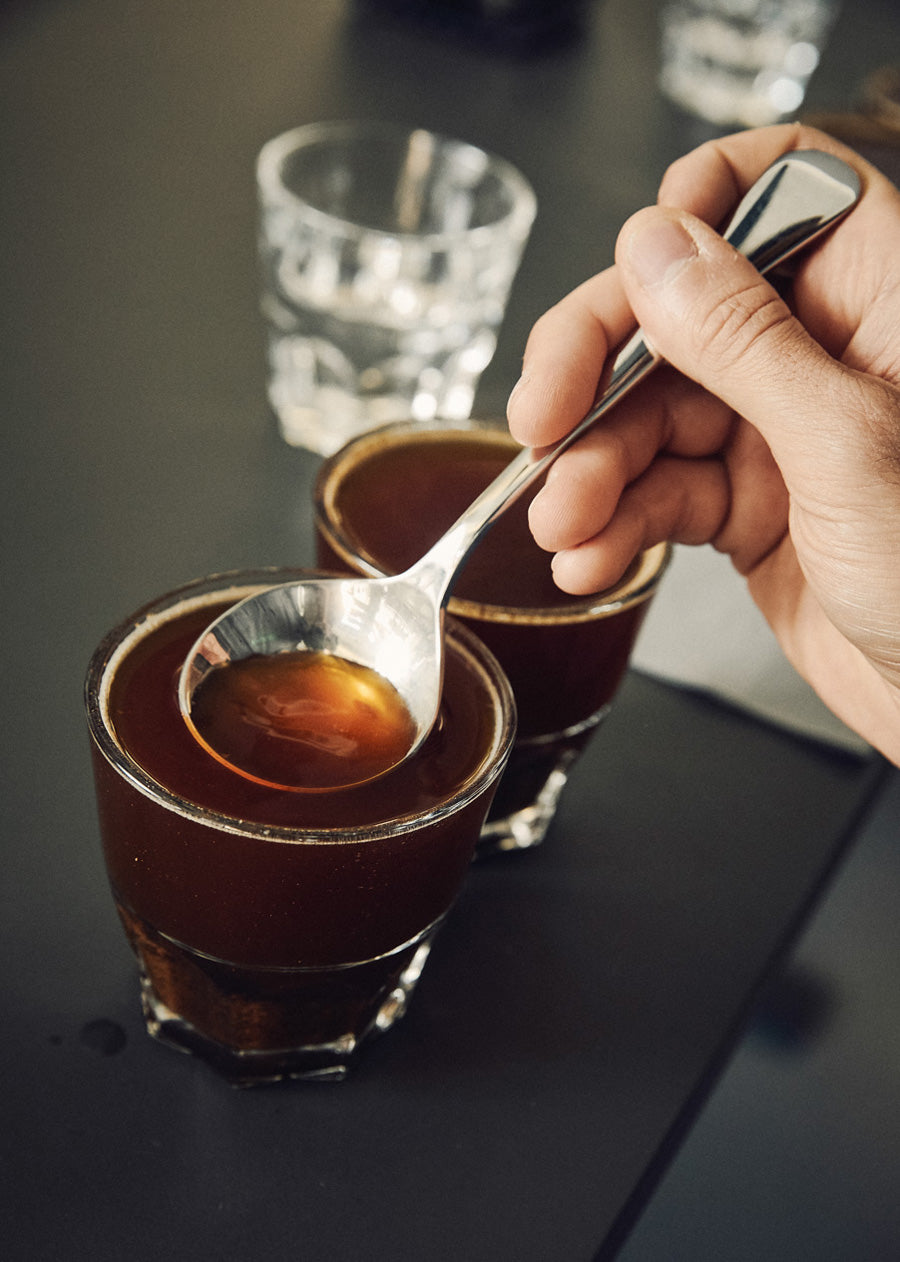
This is how important a coffee scale is for the correct coffee dosage
In order to dose your coffee optimally, a coffee scale is essential. In order to achieve the optimal brewing ratio between coffee and water, the perfect coffee dosage or "brew ratio" is essential. The perfect coffee dosage varies depending on the recipe and the amount of water chosen. The coffee drinker can then use the specific amount of these individual recipes as a guide to put together his or her own personal recipe.
A coffee scale is also important for the continuity of your brewing results. If you have found a recipe that suits your preparation method, you can always brew it with consistent quality based on your specified parameters.
The correct dosage of coffee based on your chosen preparation method
But what good are scales if you don't know exactly how much coffee you should use for your chosen preparation method? As already mentioned, there are basic values for the brewing ratio for each preparation method. In other words, an exact ratio of water to coffee. These amounts naturally vary depending on the preparation method, but can also be adjusted according to personal taste. Scales are necessary for this, because they allow you to weigh your coffee to the exact gram and achieve an optimal brewing result. Units of measurement such as the almost legendary "coffee spoon" or specially supplied dosing scoops from the manufacturers of the respective brewing method are doomed to failure. The amount of coffee is determined far too imprecisely and the cup profile also suffers as a result. Too much coffee makes for a drink that is far too strong, while too little coffee creates a drink that is too thin and undrinkable.
How many grams is needed for each preparation method:
When you first look at the guidelines for coffee dosage, it becomes clear why scales are essential when making coffee. It all depends on the ratio between water and coffee, which is best measured using scales. But the brewing time is also crucial, although this is more related to the degree of grinding of the coffee.
Hand filter: 20 g coffee - 300 ml water
AeroPress: 16 g coffee – 200 ml water
Chemex: 40 g coffee – 600 ml water
French Press: 60 g coffee – 1,000 ml water
Portafilter: 17-19 g coffee – 40-60 ml water (double espresso)
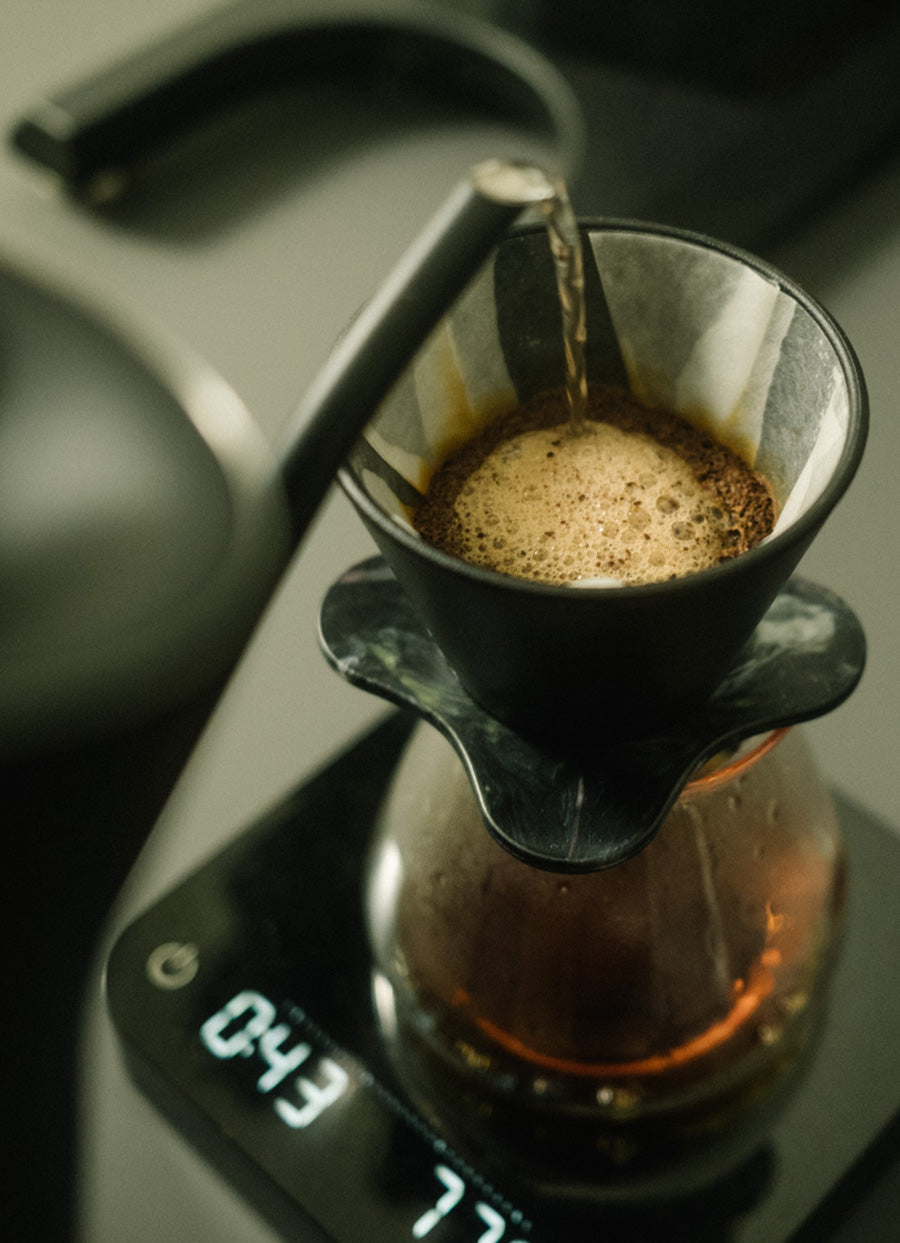
Why specifying the exact quantity is so important!
The explanation is actually quite simple. Every type of coffee, i.e. every variety, has a different structure. This also means that every type of bean has a different density. If you use an arbitrary measure, such as a tablespoon, the taste in the cup profile can change significantly. The deviation from the original recipe is simply too great and bitter or sour taste notes arise. Every coffee lover can use the dosage suggestions as a guide. The individual taste experience can be set in grams and brewed at a constant rate. In the end, however, it is your own palate that decides whether you prefer a stronger or milder coffee. We therefore recommend a digital coffee scale. With this you can create your own individual recipe and also precisely control the brewing ratio, i.e. the water-coffee ratio.
The other dosage of coffee - the enjoyment
But the dosage of coffee is not only essential when making coffee. As a coffee drinker, you should also know roughly how much coffee you can drink every day. The quality of the coffee plays a major role here. The quality should always be the best, because this way you can guarantee that the coffee has been traded fairly and directly and cultivated ecologically and sustainably. Ideally, organic farming is used during cultivation, so that all fertilizers and pesticides used are free of toxins and of purely natural origin.
If this is the case, you can enjoy 4 to 5 cups of filter coffee per day without worry. With unfiltered variants such as those from the portafilter, you can enjoy between 3 and 4 cups of coffee per day. This is not necessarily due to the caffeine content, as this is pretty much the same for most preparation methods. Coffee from the portafilter, French press or moka pot is made without filter paper, so that the suspended particles and oils remain in the cup. With filter coffee, AeroPress coffee or Chemex coffee, these substances are almost completely filtered out with the filter paper. You can tell this from the taste, which contains significantly less bitter substances than with methods without filter paper. If you do exceed your coffee dosage, there is no need to panic. As long as you take enough days with a short caffeine break, days with several cups of coffee are no problem at all. However, 400 mg of caffeine per day should be about the maximum. All in all, that's five cups of filter coffee, or six double espressos. However, you should note that other foods such as green tea or chocolate also contain caffeine. These must therefore also be included in your calculation.
Discover our Wildkaffee classics
-
Hausespresso
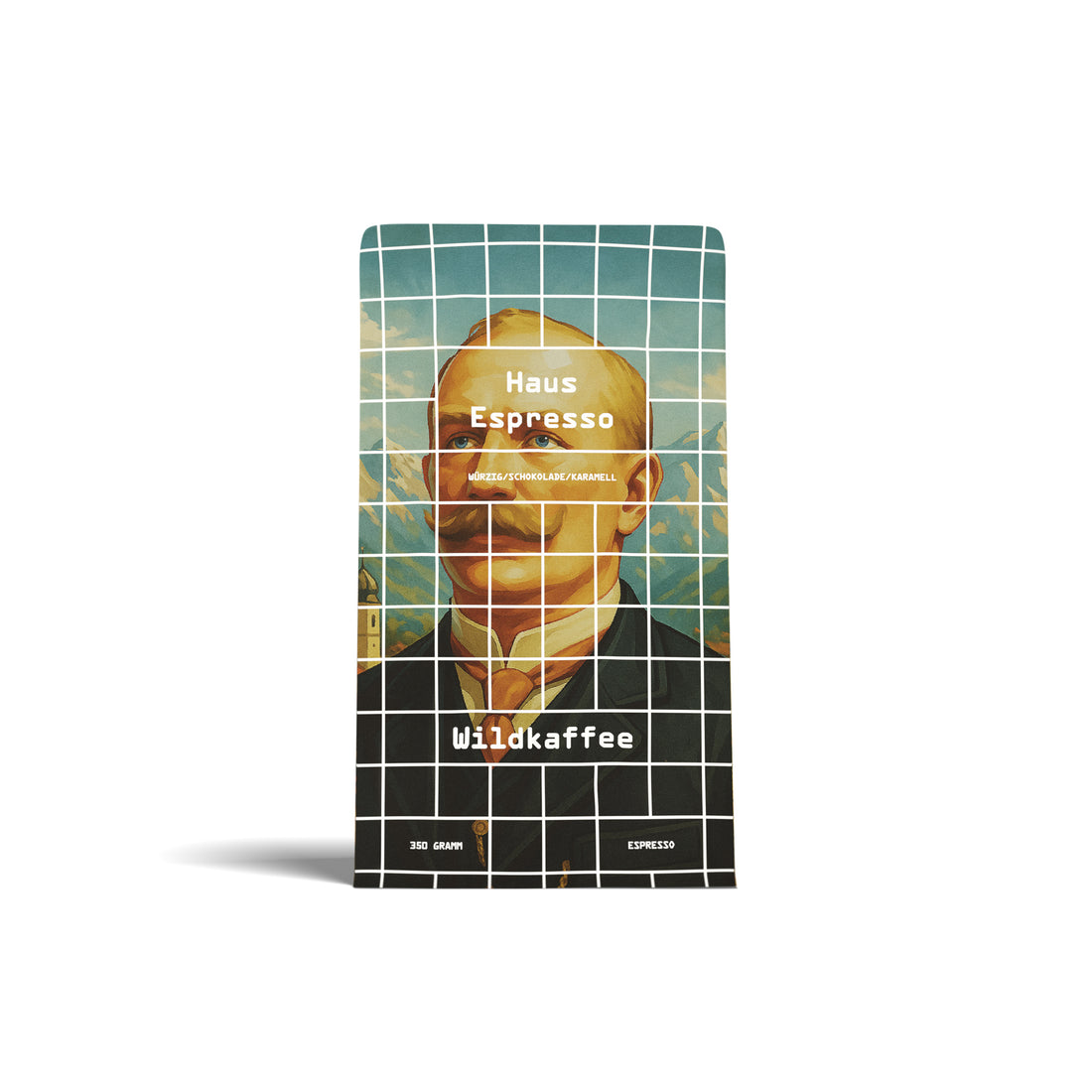 Hausespresso
Hausespresso- Regular price
-
$12.00 USD $33.00 USD - Regular price
-
- Sale price
-
$12.00 USD $33.00 USD - Unit price
-
$34.29 USD per kg
-
Wilderer Espresso
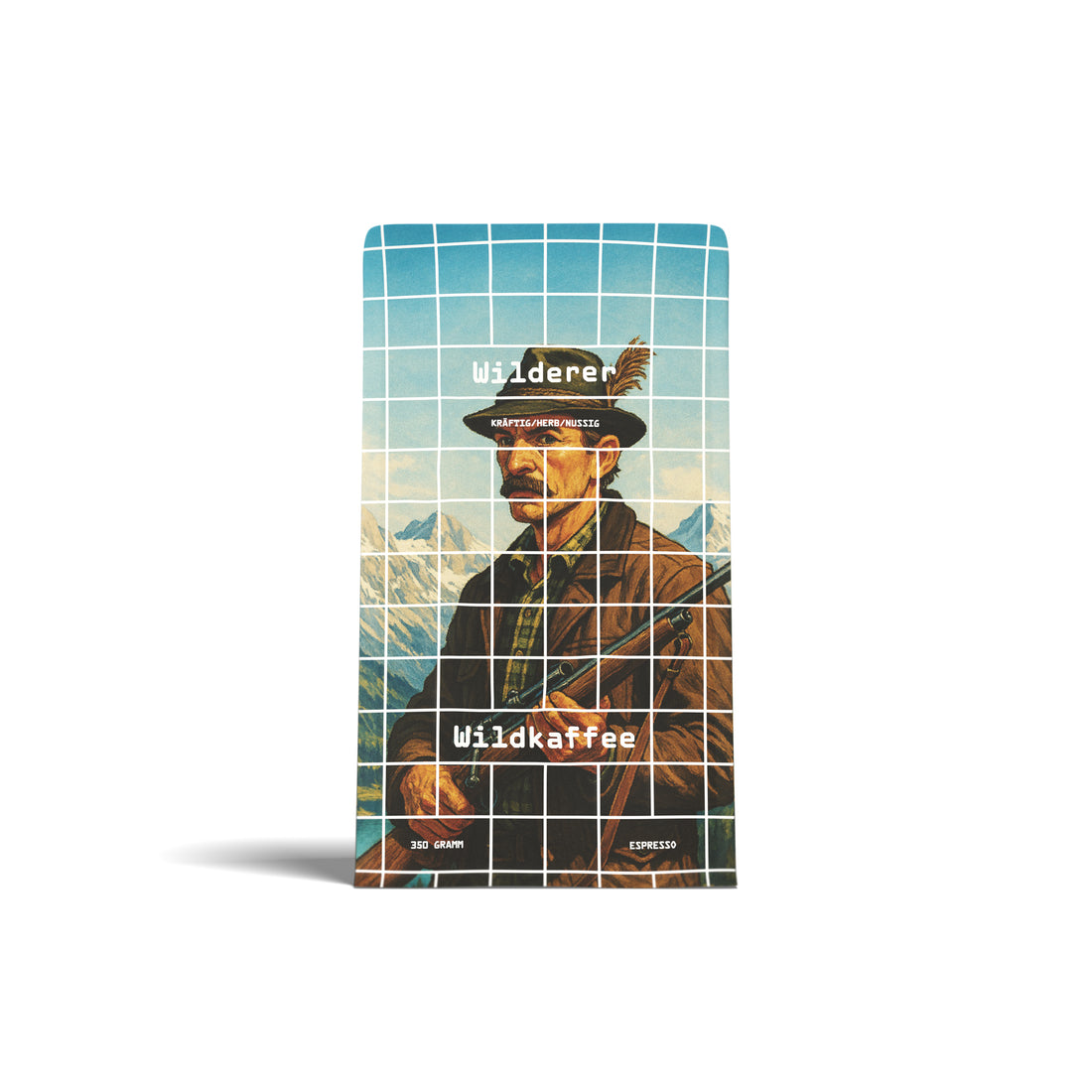 Wilderer Espresso
Wilderer Espresso- Regular price
-
$12.00 USD $33.00 USD - Regular price
-
- Sale price
-
$12.00 USD $33.00 USD - Unit price
-
$34.29 USD per kg
-
Wildsau Espresso
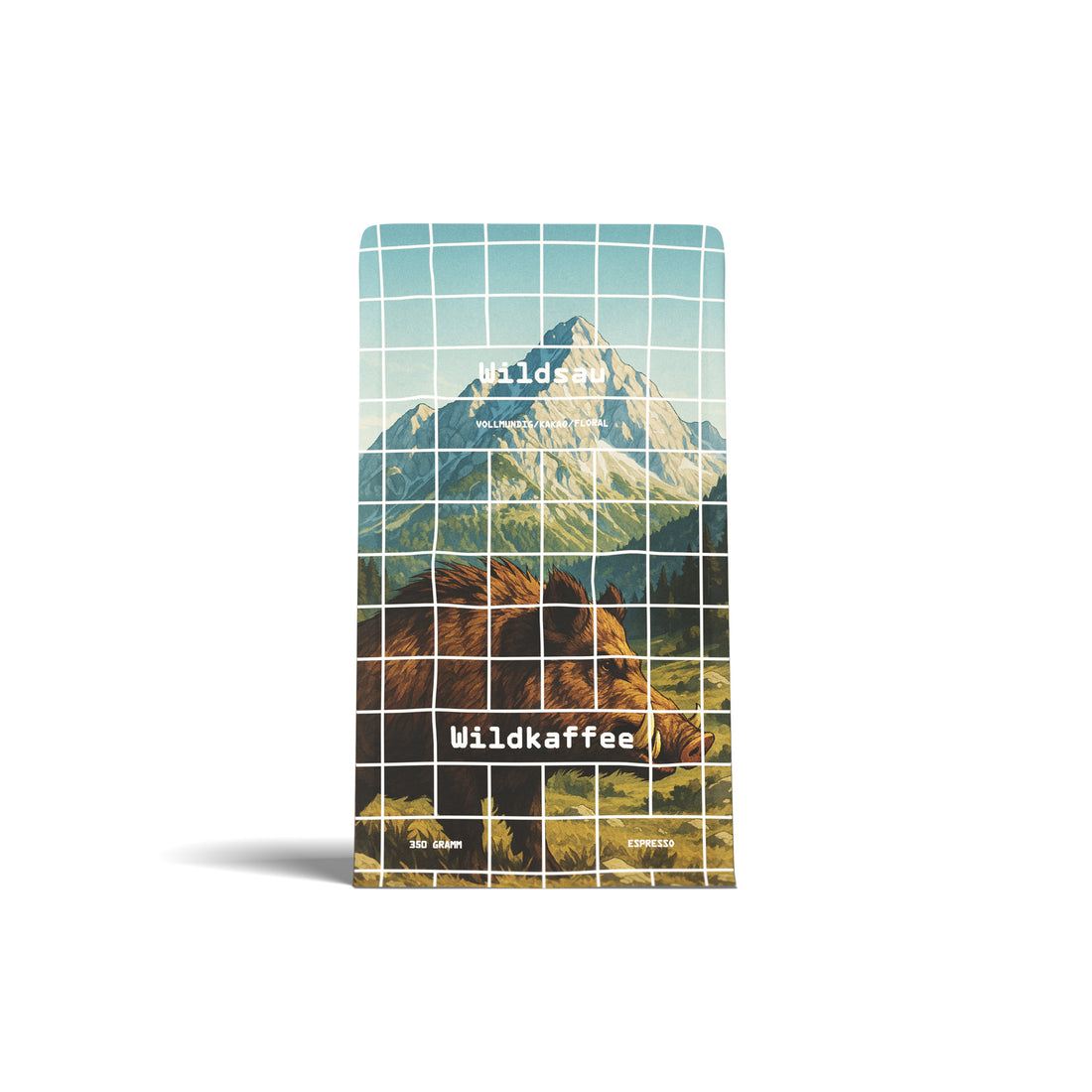 Wildsau Espresso
Wildsau Espresso- Regular price
-
$13.00 USD $35.00 USD - Regular price
-
- Sale price
-
$13.00 USD $35.00 USD - Unit price
-
$37.14 USD per kg
-
El Salvador - Coffee School Project
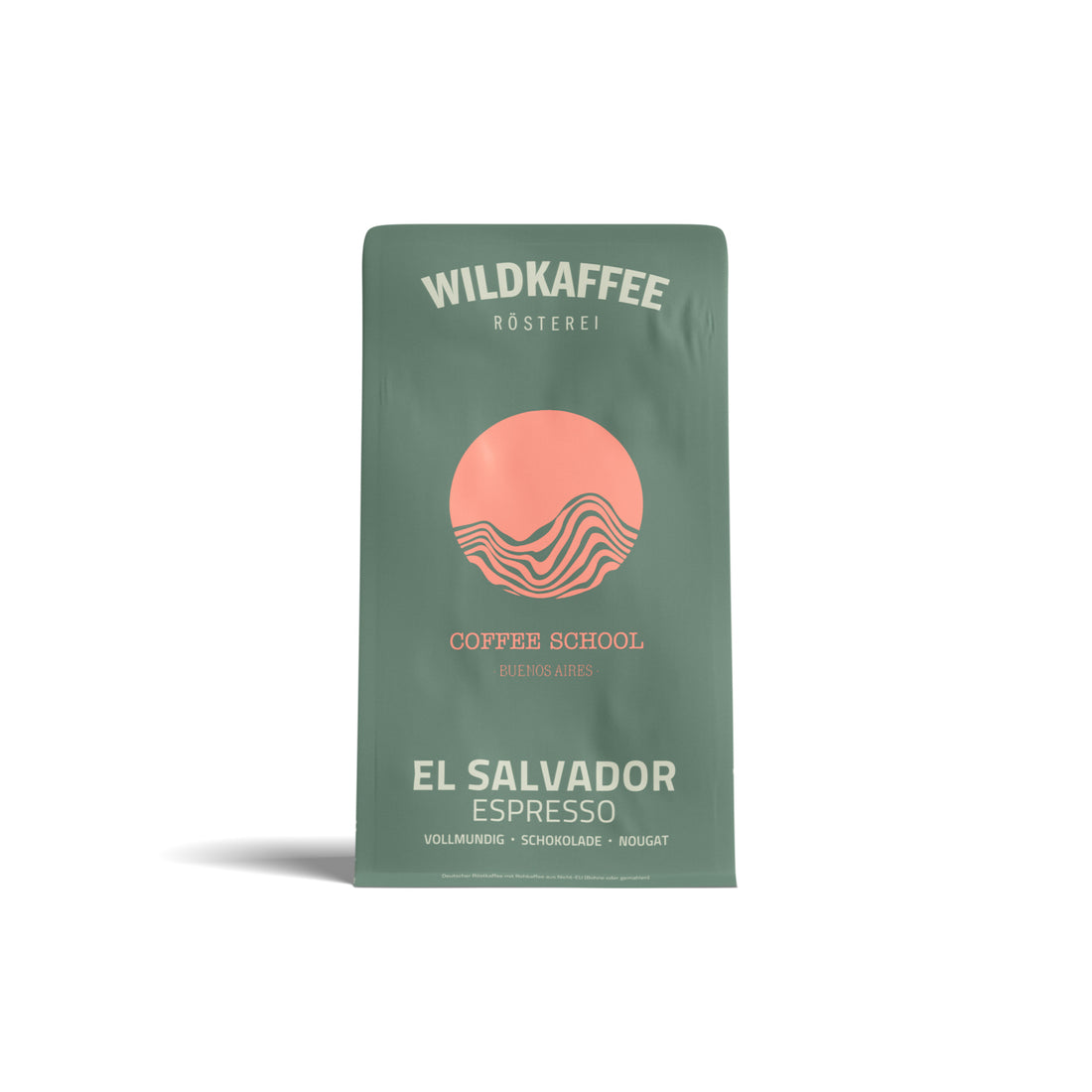 El Salvador - Coffee School Project
El Salvador - Coffee School Project- Regular price
-
$14.00 USD $36.00 USD - Regular price
-
- Sale price
-
$14.00 USD $36.00 USD - Unit price
-
$40.00 USD per kg
